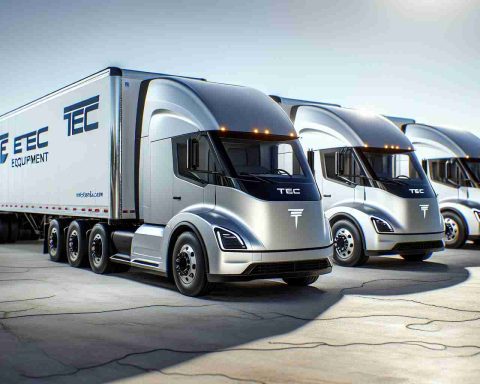Hanoi is grappling with severe pollution, but a new wave of electric motorbike enthusiasts may hold the key to cleaner air. Among these is 19-year-old Phung Khac Trung, who finds himself weaving through congested streets choked with conventional motorbikes.
Vietnam boasts a staggering 77 million petrol-powered motorbikes, but the appeal of electric alternatives is growing. Affordable e-bikes are available for as little as $500, yet many riders face challenges such as lengthy charging times and the struggle to abandon long-held habits.
With Hanoi ranked among the most polluted capitals in the world, the air quality is a significant concern for residents. Trung, who drives a motorbike taxi, expresses his discomfort with the toxic fumes, particularly at intersections where the fumes are most concentrated. Local authorities attribute more than 60% of the city’s smog to petrol vehicles, a number echoed by the World Bank.
To combat pollution, Vietnamese officials aim for 25% of two-wheelers to be electric by 2030. Currently, only 9% of two-wheelers sold are electric, trailing behind other major markets like China.
While students embrace the low costs of e-bikes, older drivers are hesitant to make the switch. Cultural habits and the convenience of petrol bikes play a crucial role in this reluctance. Innovations like quick battery-swapping stations are emerging, catering especially to delivery and taxi services which drive longer distances.
As the e-bike trend gains momentum, it brings hope for a less polluted future in Hanoi, complemented by enhancements to public transportation systems.
Riding Towards a Greener Future: Electric Motorbikes in Hanoi
Hanoi is currently facing a significant environmental challenge with air pollution levels that rank among the highest in the world. However, there is a growing movement toward electric motorbikes (e-bikes) that promises to improve air quality and reduce the city’s dependency on petrol vehicles. This change is particularly important in a city where over 77 million petrol-powered motorbikes contribute to severe air quality issues.
The Electric Motorbike Revolution
The shift to electric motorbikes in Hanoi is gaining traction, especially among the younger demographic. These e-bikes offer an affordable entry point, with prices starting around $500. However, numerous challenges accompany this shift, including lengthy battery charging times and the ingrained habits of seasoned riders accustomed to petrol versions.
Health Impact and Air Quality
Air pollution in Hanoi has reached alarming levels, with extensive studies indicating that more than 60% of the city’s smog is attributable to petrol-powered vehicles. The World Bank supports these findings, emphasizing the need for immediate action to protect public health. Phung Khac Trung, a 19-year-old motorbike taxi driver, highlights the discomfort caused by toxic fumes, particularly in densely trafficked areas like intersections.
Government Initiatives and Goals
In response to this pressing issue, Vietnamese authorities have set ambitious goals to promote electrification. Their target is to have 25% of all two-wheelers be electric by 2030. Currently, only 9% of two-wheelers sold in Vietnam are electric, signaling a considerable gap compared to markets like China where e-bikes have gained significant popularity.
Challenges to Adoption
Despite the appeal of e-bikes, older riders remain hesitant to transition away from petrol. Cultural attitudes and the convenience provided by petrol bikes are significant barriers. Nonetheless, innovative solutions, such as battery-swapping stations, are beginning to emerge, particularly benefiting those in industries like delivery and taxi services that require longer travel distances throughout the day.
Use Cases and Market Insights
Electric motorbikes not only promise to reduce emissions but also cater to various use cases, from daily commuting to delivery services. The potential for e-bikes to transform urban mobility in Hanoi is palpable, particularly as enhancements to public transportation systems complement these efforts.
Pros and Cons of Electric Motorbikes
# Pros:
– Environmental Impact: Significant reduction in air pollution and greenhouse gas emissions.
– Cost-Effectiveness: Lower operating costs compared to petrol bikes.
– Government Support: Incentives and initiatives aimed at increasing e-bike penetration.
# Cons:
– Charging Infrastructure: Insufficient charging stations could hinder widespread adoption.
– Initial Costs: Although cheaper models exist, some may still find e-bikes too expensive.
– Range Anxiety: Concerns over battery life and range for longer trips.
The Future of E-Mobility in Hanoi
The movement towards electric mobility in Hanoi is not just an environmental necessity; it also represents a cultural shift towards sustainable practices. As innovations continue to emerge and infrastructure improves, the prospects for e-bikes look brighter, potentially paving the way for a cleaner, healthier urban landscape.
For more information about sustainable transportation initiatives and updates, visit Vietnam Online.












